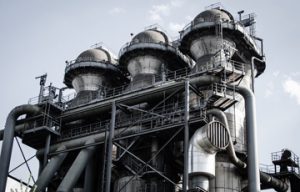Activated Carbon in the Beverage Industry
Activated carbon, often referred to as activated charcoal, is a highly porous and absorptive material derived from carbon-rich sources like wood, coconut shells, and peat. It undergoes a special activation process, usually involving heat or chemicals, to create a network of tiny pores and increase its surface area. This remarkable material is celebrated for its capacity to adsorb a wide range of substances, making it an invaluable tool in various industries, including the beverage industry.
Importance of activated carbon in the beverage industry
Activated carbon plays a pivotal role in the beverage industry as it is employed for its exceptional filtering and purifying properties. It acts as a guardian of taste and quality, ensuring that the beverages we enjoy meet the highest standards. Whether it's carbonated soft drinks, alcoholic beverages, or fruit juices, activated carbon contributes significantly to the creation of pristine, delightful, and safe drinks. In this blog post, we will delve into the multifaceted world of activated carbon in the beverage industry, exploring its functions, benefits, and the evolving trends that are shaping its usage.
The purpose of this blog post is to shed light on the critical role activated carbon plays in the beverage industry. We will uncover the science behind activated carbon, how it aids in filtration and purification, and the specific types of beverages that benefit from its usage. Additionally, we will discuss the advantages it offers, comparing it with other filtration methods, and touching upon the sustainability aspects of its application. Through real-world case studies and a glimpse into future trends, we aim to provide a comprehensive overview of the significance of activated carbon in ensuring the quality, taste, and safety of the beverages we consume.
Definition and Characteristics of Activated Carbon
Activated carbon, often referred to as activated charcoal, is a versatile and highly absorbent material renowned for its unique properties. It is primarily composed of carbon atoms, organized in a crystalline structure, and is characterized by an extensive network of pores and a remarkably high surface area. These microscopic pores, created during the activation process, give activated carbon its extraordinary adsorption capabilities. This means it can trap and hold a wide range of substances, including impurities, chemicals, and contaminants, through physical and chemical interactions.
Key characteristics of activated carbon include:
High Surface Area: Activated carbon boasts an expansive internal surface area, often exceeding 1,000 square meters per gram. This provides ample space for adsorption and makes it extremely effective in capturing and retaining molecules.
Pore Structure: The porous structure of activated carbon comes in various sizes, including micropores, mesopores, and macropores. This diversity in pore sizes allows for the adsorption of both small and large molecules.
Adsorption Efficiency: It excels in adsorbing a wide array of substances, such as organic compounds, volatile chemicals, and suspended particles, which is particularly valuable in the beverage industry.
Types of Activated Carbon Used in the Beverage Industry
In the beverage industry, various types of activated carbon find application, each tailored to specific requirements:
Powdered Activated Carbon (PAC): PAC is finely ground activated carbon with a high surface area. It is commonly used for the removal of organic impurities and taste- and odor-causing substances in water and beverages.
Granular Activated Carbon (GAC): GAC consists of larger granules, making it suitable for filtration in water treatment systems, such as those used in breweries and soft drink production.
Pelletized Activated Carbon: Pelletized activated carbon offers the advantage of ease in handling and lower dust generation. It is used in various purification processes in the beverage industry.
Understanding these different types of activated carbon and their characteristics is crucial to selecting the most suitable form for specific beverage production needs. It plays a fundamental role in maintaining the quality and safety of beverages while preserving their desired taste and aroma.
Role of Activated Carbon in Beverage Production
A. Filtration and Purification
Activated carbon is a silent hero in the beverage production process, primarily owing to its exceptional filtration and purification properties. It acts as a robust shield against impurities, ensuring that the final product meets the highest quality standards.
In beverage production, filtration is a critical step to remove particles, sediments, and unwanted compounds that can compromise taste, clarity, and safety. Activated carbon, with its porous structure and high surface area, excels at adsorbing a myriad of contaminants. Whether it's water used in soft drink manufacturing or the base ingredients for brewing beer, activated carbon serves as a reliable filter to capture undesirable elements, leaving behind a cleaner, purer liquid.
B. Removal of Contaminants and Impurities
One of the remarkable attributes of activated carbon is its ability to selectively remove contaminants and impurities, ensuring that the beverage remains untainted. It effectively targets:
Organic Compounds: Activated carbon can eliminate organic compounds, such as pesticides, herbicides, and certain chemical byproducts, ensuring that the beverage is free from potentially harmful substances.
Chlorine and Chloramines: In water treatment for beverage production, activated carbon is used to remove chlorine and chloramines, which not only affect taste but can also interact with other ingredients to produce undesirable reactions.
Heavy Metals: Activated carbon can adsorb heavy metals like lead, arsenic, and mercury, making beverages safer for consumption.
Off-Flavors: Many beverages are prone to off-flavors due to the presence of volatile organic compounds. Activated carbon's adsorption capabilities help in the removal of these compounds, resulting in a cleaner, more palatable taste.
C. Enhancing Taste and Quality
Beyond its purification role, activated carbon contributes significantly to enhancing the taste and overall quality of beverages. The removal of impurities and undesirable compounds results in a smoother, cleaner flavor profile. For example, in the brewing industry, activated carbon treatment can lead to crisper, more well-defined beer flavors, allowing the unique characteristics of hops and malt to shine.
Activated carbon also plays a crucial part in the production of carbonated soft drinks. By removing organic contaminants and chlorine, it ensures that the beverages are free from any unpleasant odors and tastes, offering a refreshing and consistent experience to consumers.
In essence, activated carbon is a key player in the quest for beverage excellence. Its roles in filtration, purification, and flavor enhancement are indispensable in maintaining high-quality standards. Whether you're enjoying a sparkling soda or a meticulously crafted beer, you can savor your favorite beverage with confidence, knowing that activated carbon has played a significant role in its journey from raw ingredients to the perfect sip.
Types of Beverages that Benefit from Activated Carbon
A. Carbonated Soft Drinks
Carbonated soft drinks, including colas, lemon-lime sodas, and various flavored sodas, greatly benefit from the use of activated carbon. Activated carbon plays a pivotal role in enhancing the quality and taste of these beverages. By effectively removing organic compounds, chlorine, and other impurities from the water used as the base, it ensures that carbonated soft drinks maintain a crisp, refreshing taste while eliminating any off-flavors or odors. This purification process helps create consistent and delightful carbonated beverages that consumers know and love.
B. Alcoholic Beverages
Activated carbon is a trusted ally in the production of a wide range of alcoholic beverages, from spirits like vodka and whiskey to wine, beer, and more. In the spirits industry, activated carbon is often used to filter out impurities, color compounds, and undesirable flavors, resulting in a smoother, more refined product. In the world of brewing, it contributes to maintaining the desired flavor profile of the beer, ensuring that each batch is consistent and free from off-flavors. For winemakers, activated carbon aids in removing unwanted compounds and clarifying the wine, enhancing its aroma, taste, and appearance.
C. Non-Alcoholic Beverages (e.g., Fruit Juices)
Even non-alcoholic beverages, such as fruit juices, fruit-flavored drinks, and herbal infusions, can harness the benefits of activated carbon. Activated carbon is used to refine these beverages, removing organic compounds and contaminants that may alter their natural flavors and aromas. By applying activated carbon, beverage producers can create fruit juices that are not only pure and safe but also maintain the fresh, authentic taste of the fruits they are derived from. This is especially crucial for those seeking a healthier alternative to sugary soft drinks.
C
Benefits of Using Activated Carbon
A. Improved Flavor and Odor
One of the most significant advantages of using activated carbon in beverage production is the enhancement of flavor and odor. By eliminating unwanted compounds and impurities, it results in a purer and more enjoyable taste. Beverages like soft drinks and spirits are known for their distinct and consistent flavors, which can be achieved and maintained through the careful application of activated carbon. The removal of off-flavors and unpleasant odors ensures that consumers experience a delightful, clean, and appealing beverage every time.
B. Consistency in Quality
Activated carbon contributes to the maintenance of consistent beverage quality. In an industry where brand loyalty is closely tied to taste and experience, consistency is paramount. Whether it's a beloved soft drink or a renowned whiskey, consumers expect the same exceptional quality with each purchase. Activated carbon aids in achieving this consistency by effectively filtering out impurities, ensuring that each batch is as excellent as the last.
C. Compliance with Regulatory Standards
Meeting regulatory standards is a non-negotiable requirement in the beverage industry. Activated carbon assists beverage producers in complying with these standards by removing harmful substances and contaminants. This ensures that the beverages not only taste great but are also safe for consumption. Regulatory compliance provides peace of mind to both producers and consumers, assuring that all products are held to the highest safety and quality benchmarks.
In summary, activated carbon is a versatile and invaluable tool in the beverage industry, offering a multitude of benefits to various types of beverages. From improving taste and quality to maintaining consistency and ensuring compliance with regulations, it plays a vital role in the creation of beverages that delight the palate and meet the highest industry standards.
Conclusion
Activated carbon is a true unsung hero in the world of beverage production, silently working its magic to elevate the quality, flavor, and safety of a wide array of drinks. This remarkable material, with its high surface area and exceptional adsorption properties, ensures that the beverages we enjoy meet the highest standards, delivering an experience that consistently delights our senses.
From carbonated soft drinks to the finest wines and spirits, and even the purest fruit juices, activated carbon plays a crucial role in refining and perfecting these beverages. It removes impurities, off-flavors, and contaminants, leaving behind a cleaner, purer liquid. The result is a taste that is crisp, refreshing, and true to its essence.
But its significance goes beyond just the palate. Activated carbon also ensures the safety and compliance of these beverages with stringent regulatory standards. It guarantees that every sip we take is not only a pleasure but also a trusted and safe choice.
As we raise our glasses to savor the refreshing bubbles of a soft drink, the complexity of a fine wine, or the purity of a fruit juice, let's raise our appreciation for the unsung hero in our glasses – activated carbon. In the world of beverages, it silently transforms raw ingredients into liquid perfection, giving us a consistent and delightful experience every time. So, here's to activated carbon, the guardian of our beverage enjoyment, ensuring that each sip is a sip of pure excellence.
Jay Maa Bhavani Chemicals, an leading manufacturer of activated carbon in India, stands as a beacon of excellence and innovation. With a steadfast commitment to quality, cutting-edge technology, and a deep understanding of the industry, Jay Maa Bhavani Chemicals has not just met industry standards but has continually set new benchmarks. As they forge ahead, their journey is one of unwavering dedication to delivering the purest, most reliable activated carbon products to customers worldwide.













